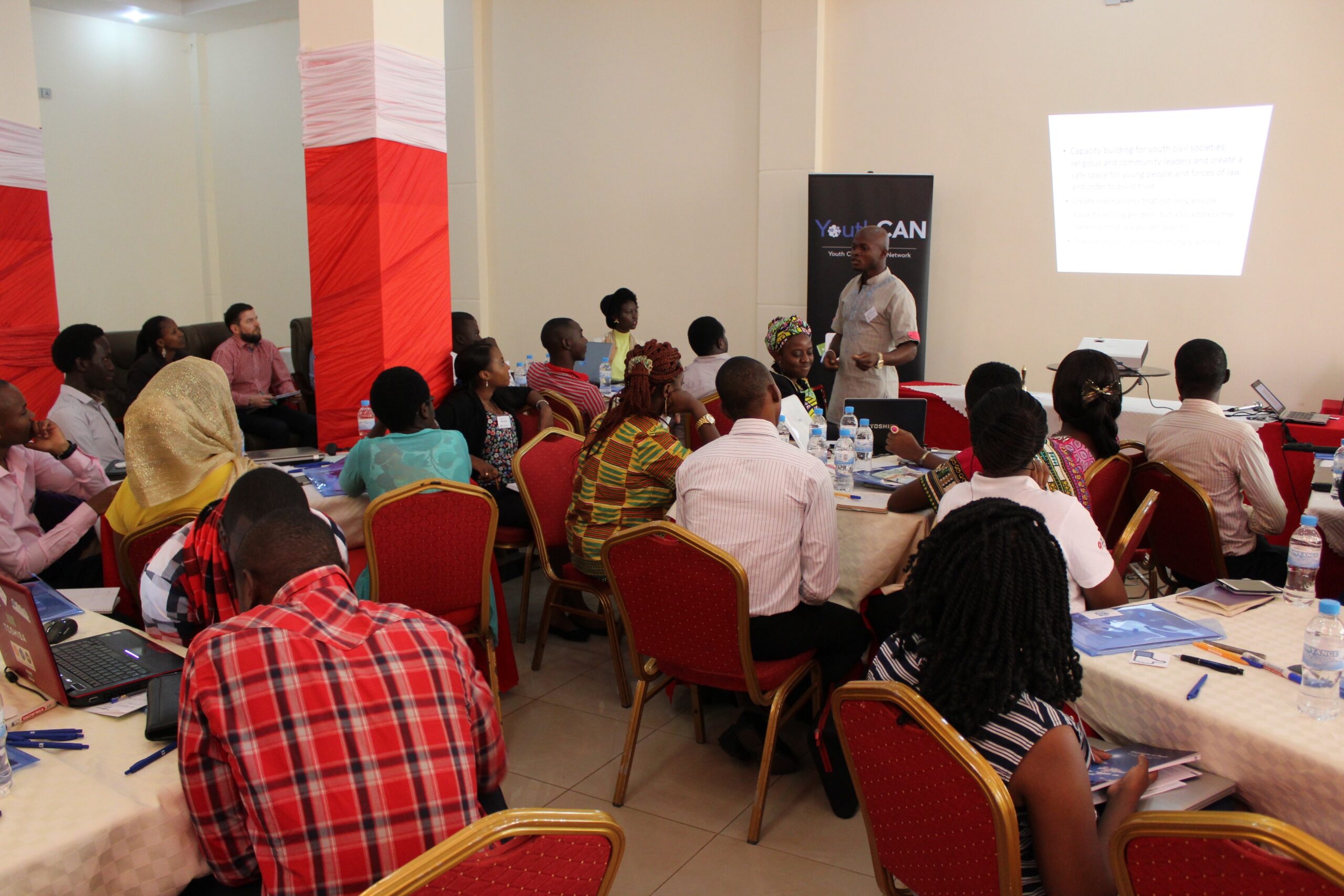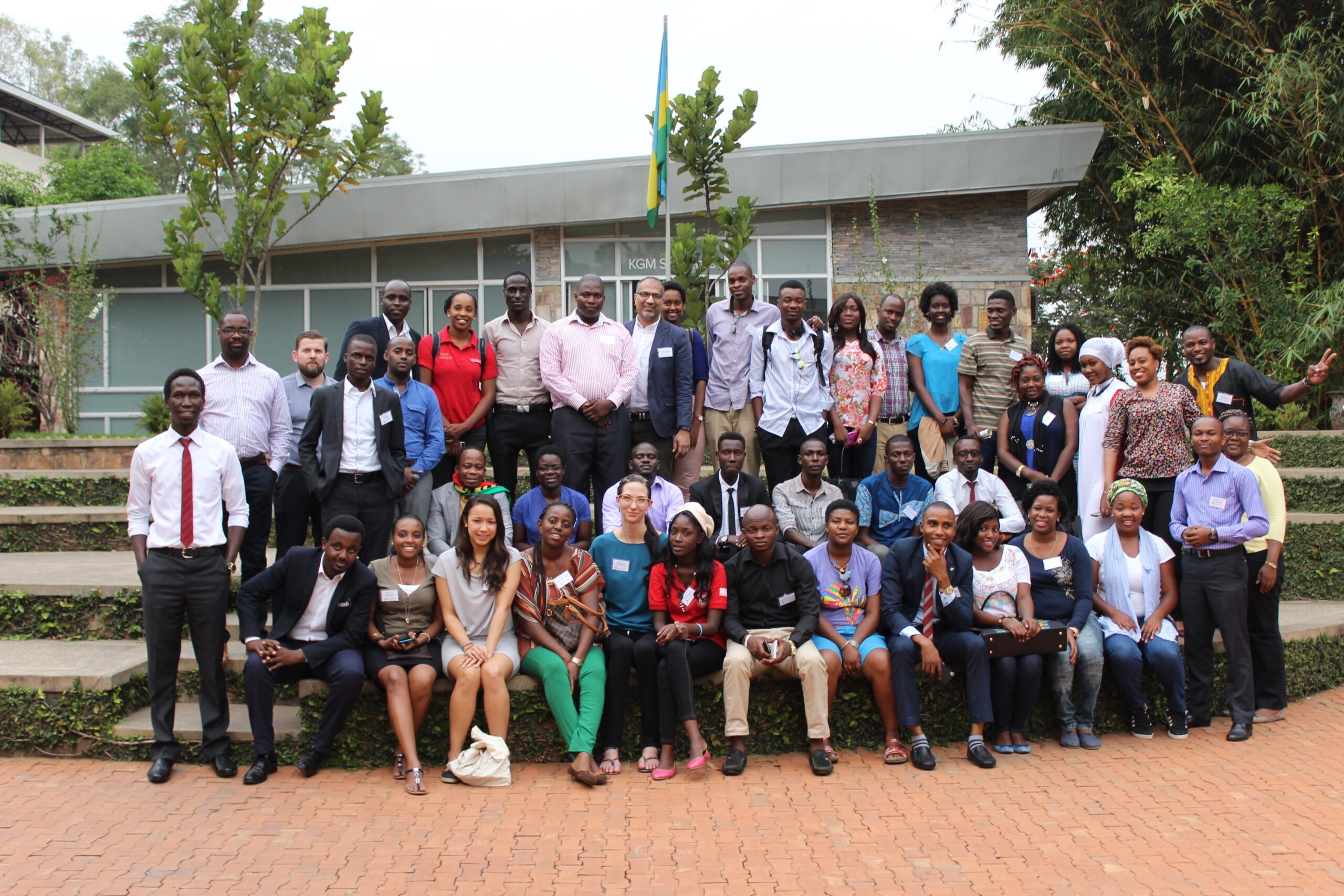Young peacebuilders form activism network in Commonwealth Africa
February 19th, 2016Young peacebuilders from Commonwealth countries in Africa are set to establish a regional youth peacebuilding network, following a connection and capacity building event held by the Commonwealth Secretariat and the Institute of Strategic Dialogue (ISD) in Kigali, Rwanda from 11-13 February.
The Kigali event, a partnership between the Commonwealth and ISD, is part of an initiative based on two networks – the Commonwealth Youth Peace Network (CYPN), which is focused on youth-led peacebuilding and conflict prevention strategies, and ISD’s Youth Civil Action Network (YouthCAN) model of working to counter violent extremism through counter-narratives and technology.
The joint Commonwealth YouthCAN initiative was launched at a pan-Commonwealth level during the Commonwealth Heads of Government Meeting in Malta in November 2015. The Africa region is the first to form a regional network through the initiative, and will also provide a model for regional networks in other parts of the Commonwealth, tailored to the unique realities of each region.
Katherine Ellis, Director of Youth at the Commonwealth Secretariat, said, “I welcome the establishment of a Commonwealth youth peace-building network in the Africa region. Young people’s multiple identities uniquely position them to connect, build understanding and influence their peers. They have a vital role to play in paving the way for peaceful communities and proactively countering violent extremism. Such a network allows young people to enhance the impact of their work, while promoting Commonwealth values of respect, understanding and peace.”
The young activists of the network will collaborate on projects aimed at promoting peace and preventing violent extremism in the Africa region. In some instances they will upscale current work, and they will also embark on new peace initiatives by partnering with their peers across the continent.
 During the three-day Kigali workshop, or ‘Innovation Lab’, the young people built their capacity to analyse the root causes of conflict in their communities, and techniques to build social cohesion using a variety of methodologies including sport. They visited the Kigali Genocide Memorial to reflect on and ground their training, which included skills in upscaling social media and community campaigns. The workshop culminated in the creation of anti-extremism and peace messages and action plans.
During the three-day Kigali workshop, or ‘Innovation Lab’, the young people built their capacity to analyse the root causes of conflict in their communities, and techniques to build social cohesion using a variety of methodologies including sport. They visited the Kigali Genocide Memorial to reflect on and ground their training, which included skills in upscaling social media and community campaigns. The workshop culminated in the creation of anti-extremism and peace messages and action plans.
Achaleke Christian Leke, who will be the coordinator of the Africa region youth peace-building network, called the workshop a “fantastic experience”.
“The Innovation Lab came as a unique solution to the major challenge of lack of capacity, skills and platforms for networking faced by young peacebuilders in Africa. Many of us are already working to foster peace and counter extremism in our communities but this marks a turning point in youth engagement in Africa because we now have a platform to work together.”
The Commonwealth has a long history of involvement in peace-building efforts. In 2007 it published ‘Civil Paths to Peace’, the report of the Commonwealth Commission on Respect and Understanding, chaired by the Nobel laureate Amartya Sen. ‘Civil Paths to Peace’ was the result of a mandate from Commonwealth leaders to examine the causes of conflict, violence and extremism in Commonwealth countries. It focuses on the importance of multiple identities, and the role that women, young people and the media can play in building peace.
More recently, Heads of Government agreed to establish a unit within the Commonwealth Secretariat to increase efforts to counter radicalisation and violent extremism, including through civil society networks and education.
Innovation Labs will be conducted in each Commonwealth region throughout 2016. To get involved in these youth peacebuilding efforts please email cwyouthcan@commonwealth.int.




